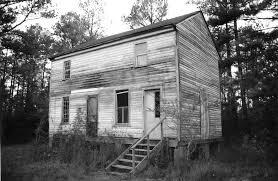In a recent article by a London based news source they quoted their “experts” who claimed that GWTW was just Margaret Mitchells attempt to revise history and portray the war as being about nothing more than States Rites, and that the slaves were all portrayed to be the “happy darkies” down on the plantation.
My response was rather pointed and short but just as sincere.
First, GWTW is NOT a work of fiction (as they claimed) in the broad sense. GWTW is a telling of true stories and events that did happen but in a way which ties them to central characters that they did not happen to. In other words, this is more biographical but (like a lot of southern storytellers) with just enough levity with “who did what” and “who was who” to keep the old time teller out of trouble with the neighbor whose story was just shared in front of a crowd. I have spent the past 30 years following the trail of true events that happened and people who resemble the characters in GWTW with most of them residing within a few miles of the place Margaret said she heard the stories (the Fitzgerald House) or within a few miles of the place where she visited her grandparents in Atlanta and heard the stories, “on their fat slippery laps”.
Secondly because of the truth of it I can state that I have documented (as Margaret claimed) a real maid named Prissy and another named Pork. I have found stories of slaves (like Mammy) who stared down the Yankees, raised the families children and ….even rescued the future governor from the Battlefield (he was a Colonel in the confederate Army) and while there are many stories that parallel the slave characters in GWTW, never do I take for granted that a small group of slaves (5-10 in her book) or in my research (10-15) represent the lives of ALL the slaves in the Georgia.
Finally, when the movie opens we hear Fred Crane (Bret Tarleton) speak of war and Scarlett rebuke him. In fact she continues to rebuke him and his brother and the other “warriors” all during the movie. Rhett Butler tells the men in the parlor of their “flight of fancy” since their dreams are based on their arrogance. And Ashley Wilkes, the reluctant warrior who seems content to stay home but, will go with Georgia is the state secedes. Therefore rather than being a “Lost Cause” propaganda piece it is more a look at the stupidity of it all (a belief that Scarlett states before Rhett leaves her on the Road To Tara to go and join the fight).
I believe that Margaret Mitchell did a good job telling a story that has many sides and that none of us can contain in one book or one movie. I think that the “gumption” of her characters still draws pulls on the heart strings today. And I believe that those who seek to condemn the book or movie are simply doing it for their own aggrandizement and are thus “tilting at windmills”.
Peter
Leave a Reply